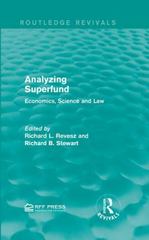Question
Use the information below to answer the questions that follow. England appears to be relatively abundant in labor, but scarce in land. The U.S. appears
Use the information below to answer the questions that follow.
England appears to be relatively abundant in labor, but scarce in land. The U.S. appears to be relatively abundant in land, but scarce in labor.
It turns out that:
- Wheat requires more land than labor
- Cloth requires more labor than land
Question 1: In the short term, what will happen to the price of the goods under free trade (increase or decrease):
(a.) Cloth in the U.S: increases, Cloth in England: decreases | Wheat in the U.S: decreases, Wheat in England: increases
(b.) Cloth in the U.S: decreases, Cloth in England: increases | Wheat in the U.S: increases, Wheat in England: decreases
(c.) Cloth in the U.S: decreases, Cloth in England: decreases | Wheat in the U.S: increases, Wheat in England: decreases
(d.) Cloth in the U.S: decreases, Cloth in England: increases | Wheat in the U.S: decreases, Wheat in England: decreases
Question 2: In the long term, what will happen to the price of these factor inputs under free trade (increase or decrease):
(a.) Land in the U.S: increases, Land in England: decreases | Labor in the U.S: decreases, Labor in England: increases
(b.) Land in the U.S: decreases, Land in England: increases | Labor in the U.S: increases, Labor in England: decreases
(c.) Land in the U.S: decreases, Land in England: decreases | Labor in the U.S: decreases, Labor in England: increases
(d.) Land in the U.S: decreases, Land in England: increases | Labor in the U.S: increases, Labor in England: increases
Step by Step Solution
There are 3 Steps involved in it
Step: 1

Get Instant Access to Expert-Tailored Solutions
See step-by-step solutions with expert insights and AI powered tools for academic success
Step: 2

Step: 3

Ace Your Homework with AI
Get the answers you need in no time with our AI-driven, step-by-step assistance
Get Started


